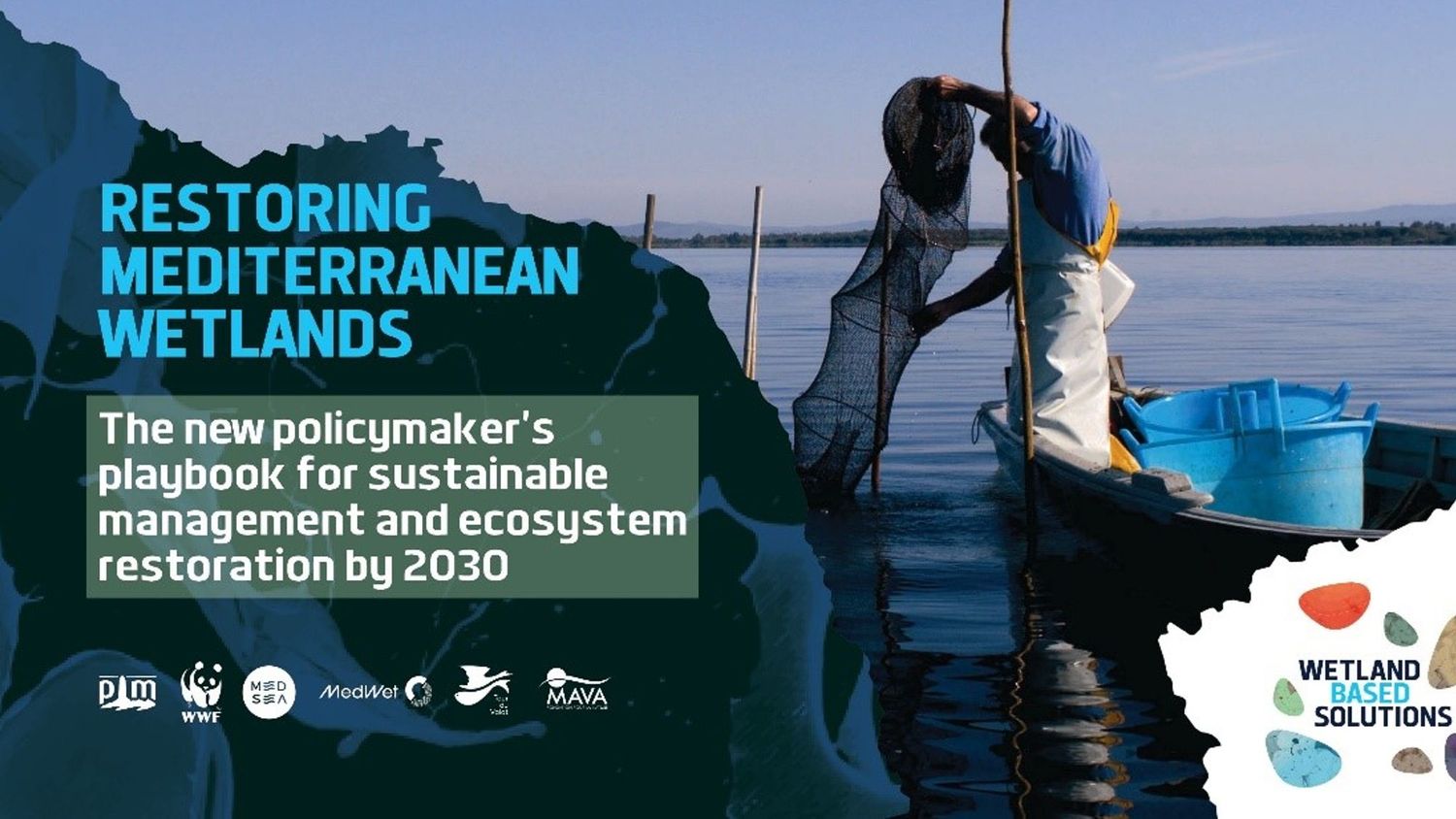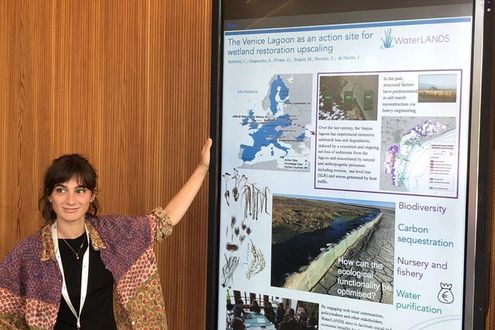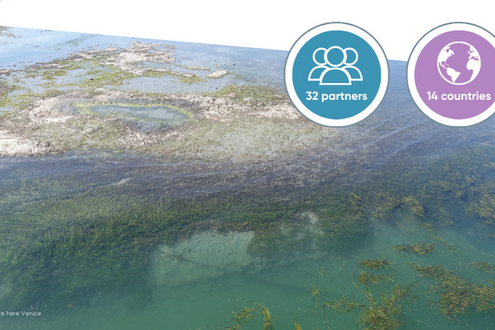Urgent action to restore Mediterranean wetlands is needed to survive the climate crisis and save our natural capital. It’s time to face up to the devastating impact of losing rich and diverse ecosystems that are more resilient to climate change, and the toll greater volatility in the water cycle will have on the drinking water supply, food security, health, jobs, recreation and tourism.
Wetlands across the globe currently hold up to 50% of the world’s carbon in their soils The conversion of wetlands into other land-uses transforms them from carbon sinks into carbon sources. Restoring Mediterranean wetlands will help catch more carbon and other pollutants such as agricultural fertilisers and will play a vital role in meeting water-quality targets and reviving degraded landscapes. Nearly 25% of the Mediterranean’s remaining wetlands are artificial, and more than 50% of the basin’s coastal waters have failed Good Conservation standards as set out by the European Water Framework Directive, but we can change that will smart investment in this natural resource.
The cost of ineffective water management Converting wetlands into other land-uses costs the world US$4.3 – 20.2 trillion per year in damages and artificial solutions. Wetlands offer the opportunity to manage water quantity and buffer extreme weather events such as floods, droughts, and coastal storm surges, which could reduce costs by US$ 51 trillion per year globally.
Through better planning and understanding we can increase Wetlands resilience and start improving water quality. By committing to partnerships that use integrated restoration strategies and Nature-based Solutions, policymakers and funders have the opportunity to reinvest in our wetlands. Helping to reduce flood peaks and protect us from the misery of the flooding, drought and wildfires that affect communities, the economy, and the ecosystem.
Conservationists and policymakers can upscale project teams with multiskilled partners The UN Decade on Ecosystem Restoration calls for projects to go further in identifying opportunities to integrate and scale-up work that will reverse ecosystem degradation, biodiversity loss, and climate disruption and deterioration. Projects partners need to go further in combining tools and bringing in multidisciplined professionals to create inclusive and equitable strategies that deliver clear socio-economic benefits. To support this challenge the partners for Wetland-Based Solutions have curated best practice and shared methodologies on how to select and implement wetlands restoration in a new playbook.
A new guide to help decision-makers and funders restore wetlands
Restoring Mediterranean Wetlands is a new policymaker’s handbook sustainable management and conservation of water by 2030. The guide is shaped as a playbook and available to download for free from https://www.wetlandbasedsolutions.org/restoration-handbook/
Coordinated by WWF Spain, MedWet and Tour du Valat in partnership with PIM Initiative and MEDSEA, the playbook is part of the Wetlands-Based Solutions initiative and funded by the MAVA Foundation. Tour du Valat is also a partner in the WaterLANDS project. They bring their knowledge of best practice methods of restoration to contribute to restoring wetlands sites across Europe and building a legacy for restoration.
Lisa Ernoul from Tour du Valat said: “Wetland conservation and restoration are priorities for both humans and biodiversity. We hope that this guide will help set the ground for decision makers so that they can begin more effective and efficient efforts to improve the environment now and for future generations.”
Readers can expect guidance on developing and implementing wetlands restoration initiatives and criteria on selecting sites. Experts in the field share experiences and case studies of integrated restoration using Nature-based Solutions and how to set clear objectives, identify priorities and undertake continuous evaluationas well opportunities to transfer knowledge and upscaling. There are tools, methodologies and checklists for planners to ensure they’ve thought of everything that needs to happen before, during and after an wetlands restoration project.
A third of Mediterranean wetlands species are endangered Globally wetlands only cover 1.5 – 3% of the Earth’s surface, yet they represent 45% of ecosystem services and contribute the most to human subsistence and development. And in the Mediterranean wetlands are among the most threatened ecosystems in the world with a staggering loss of 48% since 1970.
Mediterranean wetlands are a hotspot for biodiversity, c2,500 vertebrate species are found there and up to 10% of the world’s vascular plant species. Although wetlands cover only 2% of the total area of the region, one fourth of the species there depend on these habitats for their survival. We’ve seen coastal and marine vertebrate populations decline by 52% since the 1990s.
We need decision-makers to protect wetlands and invest in restoration opportunities Giuseppe Dodaro, Wetland Restoration Expert at MedWet said: "Wetlands are ecosystems of crucial importance for adaptation to climate change which provide essential ecosystem services to ensure the well-being of Mediterranean populations. Yet, they continue to be destroyed and degraded. This handbook aims to increase decision-makers awareness of the importance of their protection and provide useful indications for the implementation of effective restoration initiatives". Teresa Gil, Head of Freshwater Programme at WWF Spain said:“It is time to restore Mediterranean Wetlands for people and nature benefits."


